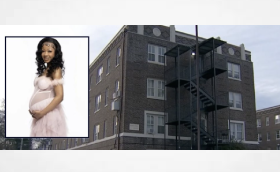The recently decided case of People v. Raybon, 11 Cal. 5th 1056 shows that even in states where the possession of marijuana is legal the courts can still find ways to charge people with possession. It also highlights the major disparity forming between state laws and federal laws concerning the legalization of marijuana.
Issue
The issue in this case is whether a possession of marijuana charge that someone has already been convicted of can still be enforced, despite statute stating that those held on possession charges be released, if the possession occurs in a state correctional facility.
Ruling
The court held that possession of a controlled substance in a state correctional facility is a felony and those convicted cannot be released until they have served their time.
Analysis
For this case, the court looked very closely at Proposition 64, the Control, Regulate and Tax Adult Use of Marijuana Act, which legalized the possession of less than one ounce of marijuana for almost any adult. Proposition 64 also added remedial provisions for persons convicted of a cannabis related crime “who would not have been guilty of an offense, or who would have been guilty of a lesser offense under the Act.1”
However, the act had several exceptions. One of these exceptions was that the Act does not amend or affect “laws pertaining to smoking or ingesting cannabis or cannabis products on the grounds of, or within, any facility or institution under the jurisdiction of the Department of Corrections and Rehabilitation.2”
The defendants in this case argued that because the exception only refers to the smoking or ingesting of marijuana their possession charge should not be enforced. The court stated that Section 11362.45(d) is most reasonably construed as encompassing laws that prohibit the possession of cannabis in prison.
The court then looked at the Penal Code which makes it a felony to possess a controlled substance in a state correctional facility.3 The court held that since the exception could be so far extended to include possession, then the exception would apply, and the defendant will still have to serve his sentence for his felony conviction for possession of a controlled substance in a state correctional facility.
Conclusion
The court was very clear in their holding stating that Proposition 64 did not invalidate convictions for possessing cannabis while in prison. Therefore, possession of cannabis in a state prison will still be charged as a felony, even if that possession would not be illegal outside of the prison.
Takeaways
- The court has made it clear that due to cannabis still being a schedule-1 narcotic federally the possession of it in a state correctional facility will still be charged as a felony offense.
- This is especially noteworthy because while cannabis is not considered a controlled substance or a schedule-1 narcotic in the state of California at this time, defendants can still be charged with possession of a controlled substance due to the federal legislation on the matter at this time. This really highlights the major disparity that is forming between state legislatures and federal and the issues that will arise for the general public.
- It can now be very confusing for the average consumer of cannabis in California and other states that have legalized with similar exceptions in their statutes. One that is in possession of cannabis legally may now wander into federal jurisdiction, either by entering a federal building or a state prison, and find that their possession is now a federal offense.

Joseph Garvey
Joseph Garvey is a first-year law student at New York Law School with a background in the cultivation of cannabis.



















